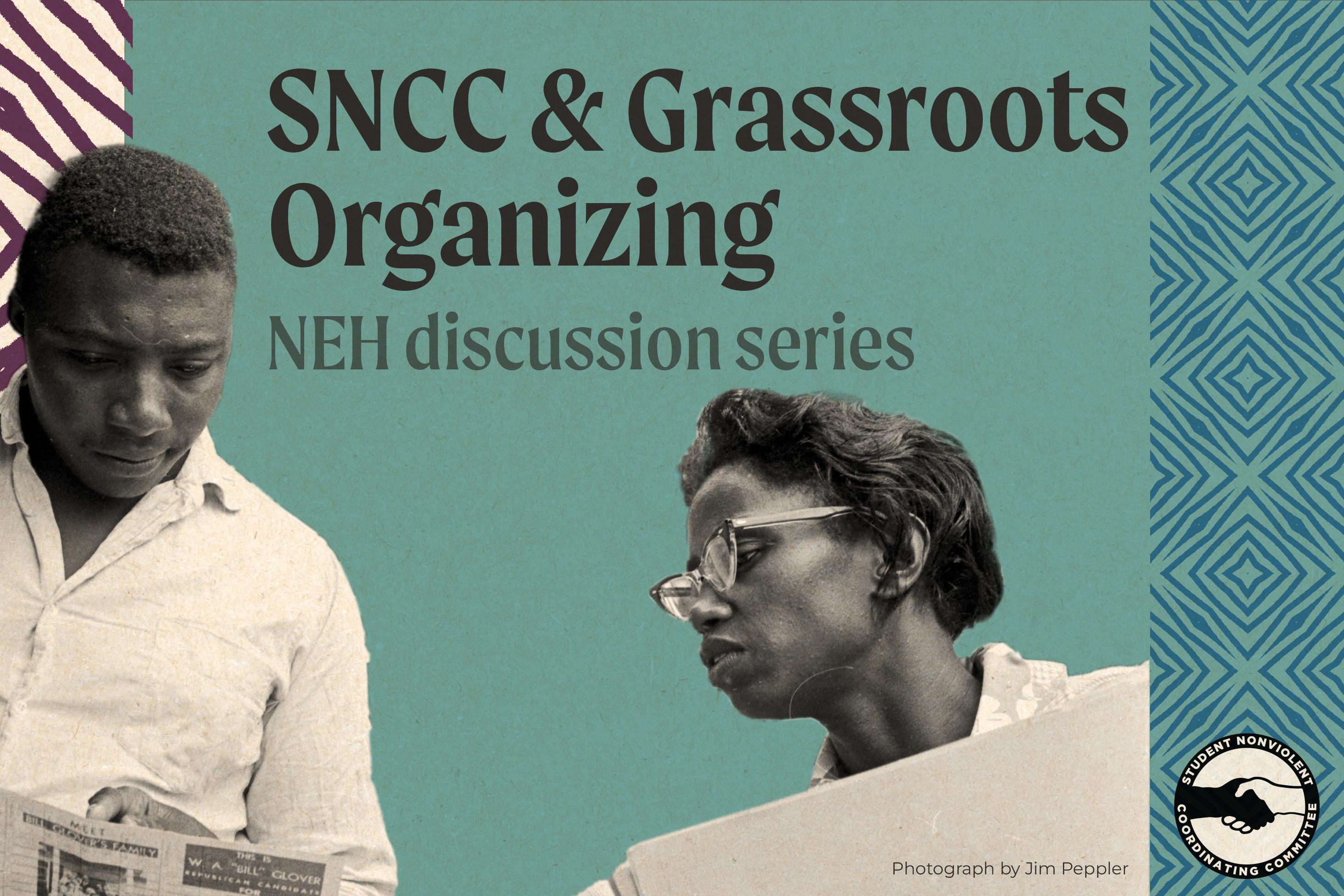SNCC and Grassroots Organizing: Building A More Perfect Union

Please join us at North Carolina Central University (Durham, NC) on February 2 & 3, 2024, for the SNCC and Grassroots Organizing: Building A More Perfect Union discussion series, generously supported by a grant from the National Endowment for the Humanities.
Featuring veterans of the Student Nonviolent Coordinating Committee (SNCC, pronounced "Snick") and humanities scholars, this two-day community gathering focuses on SNCC's grassroots community organizing and its relevance to ongoing efforts to build a more just, inclusive, and sustainable society. At its core, SNCC helped community members feel empowered to make choices and act on the issues that most impacted their lives and their communities.
Come and join your neighbors to learn more about SNCC's organizing work and explore connections to your life and community.
Friday, February 2
Art & Culture in the Movement Roundtable Discussion
7:00 p.m., NCCU Student Center, Event Hall 4
Art and culture were central to how SNCC engaged with communities during the Civil Rights Movement. SNCC hired and trained photographers; gave cameras to local people; and used community-based collaboration to create film strips and other visual materials as educational tools. But nothing was more important than the singing and movement culture at the heart of mass meetings, marches, and every other aspect of the movement. Join SNCC veterans Charles E. Cobb, Jr. and Jennifer Lawson, and humanities scholars Wesley Hogan and Joshua Myers, to learn more about the impact of art & culture in the Movement.
Can't make it in person? Join the livestream at https://duke.is/c/reye
Visit the SNCC Legacy Project website for details and to learn more: https://sncclegacyproject.org/sncc-grassroots-organizing/
Supported by a grant from the National Endowment for the Humanities, the SNCC and Grassroots Organizing discussion series is collaborative project of the Movement History Initiative (a collaboration between the SNCC Legacy Project, Duke University Libraries, the Franklin Humanities Institute at Duke and humanities scholars), six Historically Black Colleges and Universities (HBCUs), and six civil rights and African American museums.
Categories
Lecture/Talk, Panel/Seminar/Colloquium